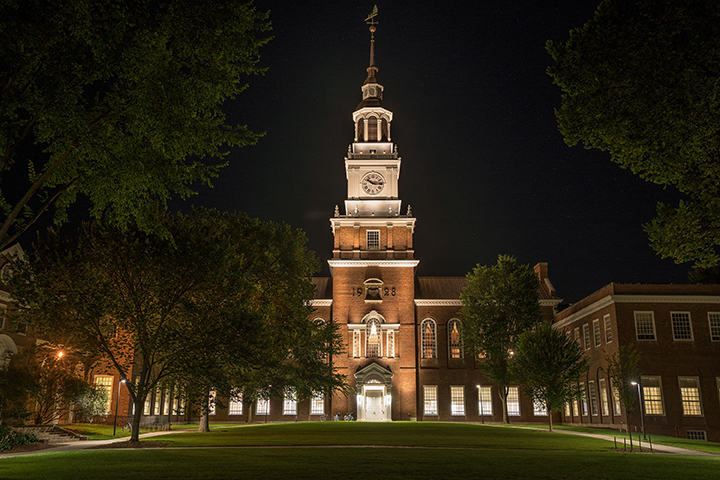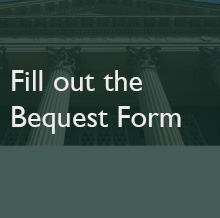Bequests

Benefits
- Flexible: You may revise your gift at any time should your circumstances change.
- Reduce your estate taxes.
- Helps meet Dartmouth's needs: Unrestricted bequests allow us to use your gift where it’s needed most; however, you may also direct your bequest toward Dartmouth initiatives that matter most to you.
- Recognition: Become a member of the Bartlett Tower Society.
How It Works
If you have a will or trust, or are planning to create one soon, you can name Dartmouth as a beneficiary. Your gift then passes directly to Dartmouth after your death. You can also name Dartmouth as a beneficiary of a retirement plan.
You'll choose how you would like to make your bequest: It can be for a specific dollar amount or percentage, specified assets, or even real estate or tangible personal property. You can also make your bequest residuary, meaning Dartmouth receives its portion of your estate after other obligations are met. Alternatively, you may opt for a contingent bequest, in which Dartmouth becomes the beneficiary if your initial plans cannot be fulfilled due to some change in circumstances.
Please note: Contingent bequests do not qualify for Bartlett Tower Society membership.
Next Steps
- If this planned giving option is right for you, work with your attorney to include bequest language in your will or trust; the Gift Planning Office can help you with sample language.
- Complete our online bequest form to let us know you’d like to support Dartmouth through your estate plans, and you will be recognized and celebrated during The Call to Lead campaign.

